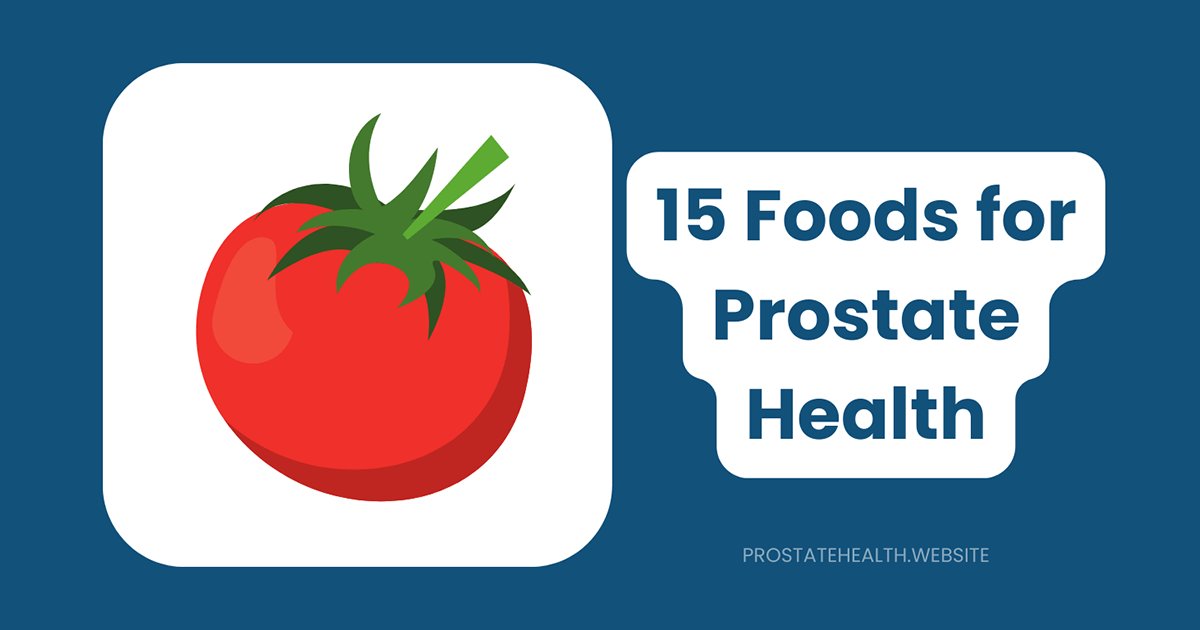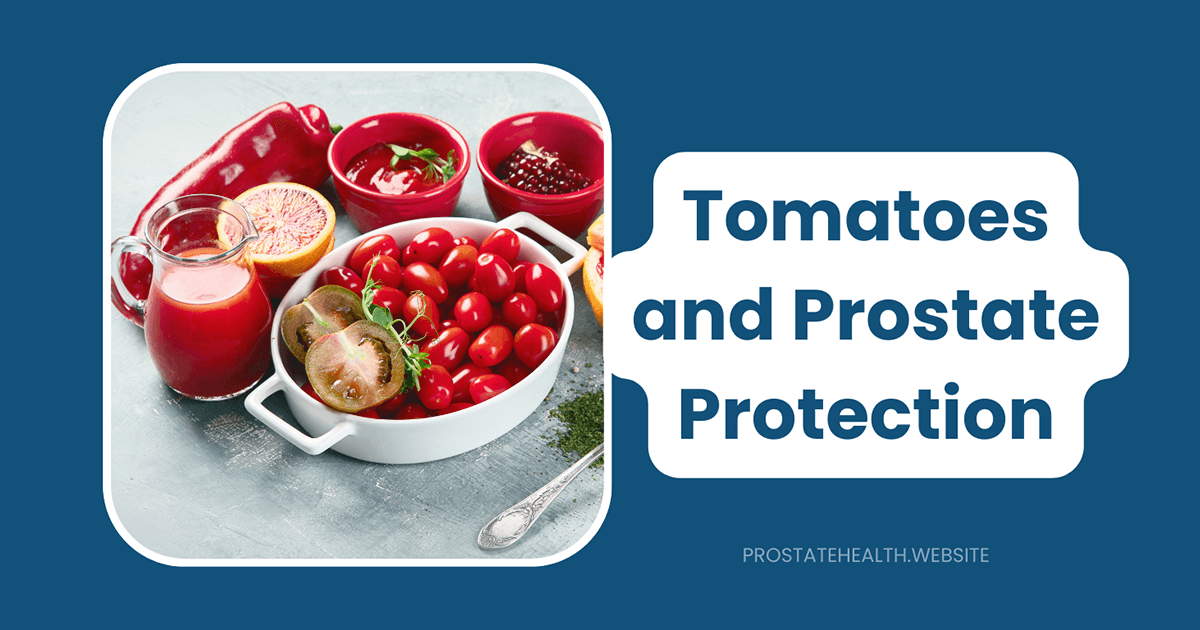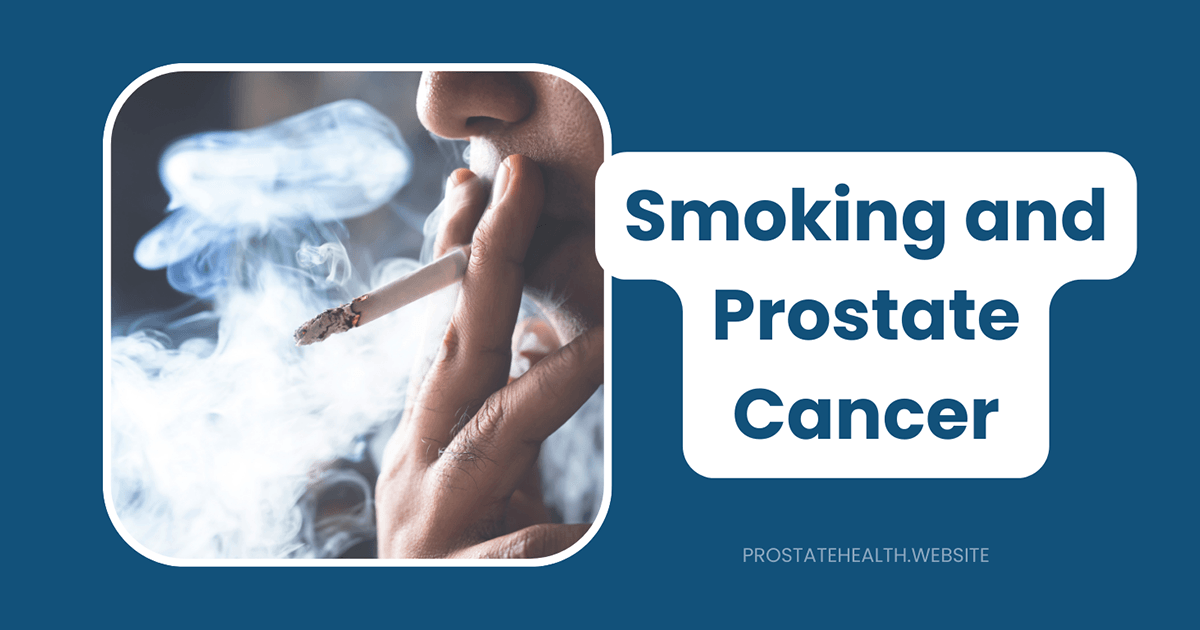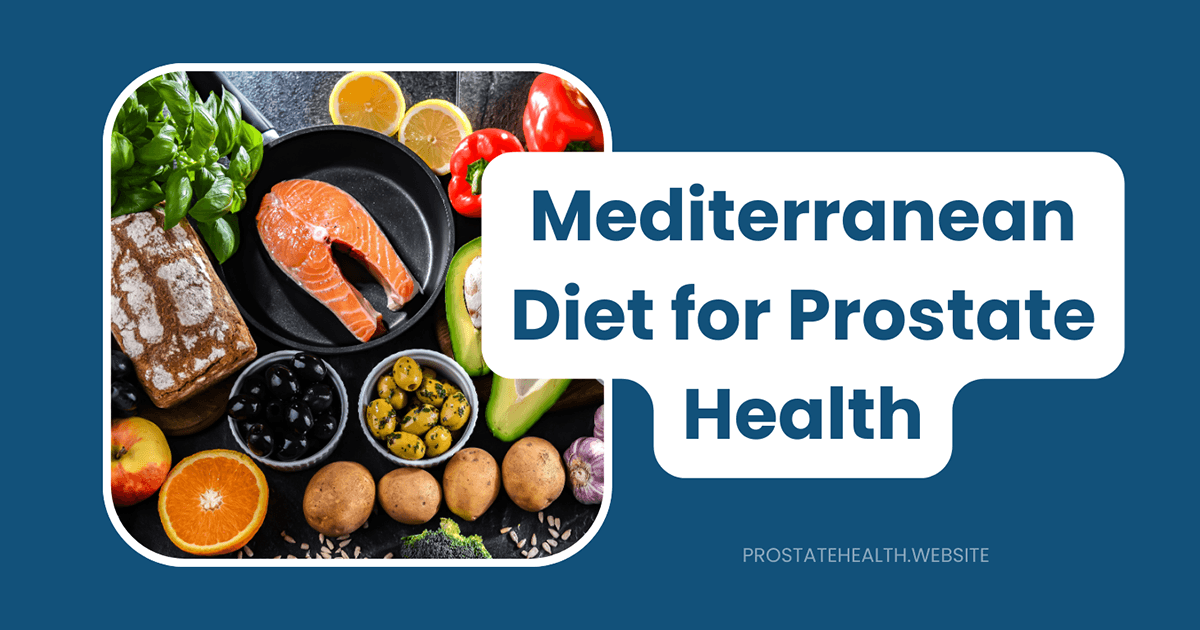Sugar and Prostate Health: Understanding the Connection
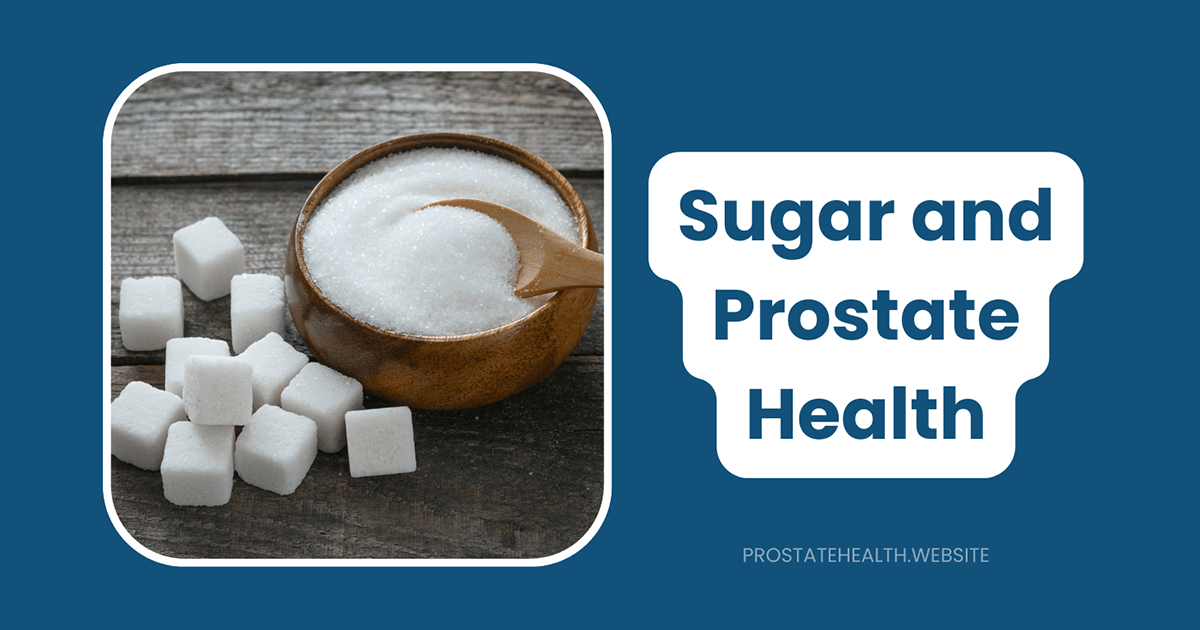
When James, a 58-year-old marketing executive, received slightly elevated PSA results at his annual checkup, his urologist mentioned something that surprised him: his sweet tooth might be partly to blame.
“I’ve always known sugar wasn’t great for my waistline or my teeth,” James told me. “But I had no idea it could affect my prostate. That was the wake-up call I needed to finally take a serious look at my diet.”
James isn’t alone in his surprise. While most men understand that diet plays a role in overall health, the specific connection between sugar consumption and prostate health remains less widely known. Yet emerging research suggests this relationship deserves our attention.
With prostate conditions affecting millions of men – from benign prostatic hyperplasia (BPH) to prostate cancer – understanding how dietary choices, particularly sugar intake, influence prostate health has never been more important.
This comprehensive guide explores the science behind sugar and prostate health, examining both the direct and indirect ways sugar consumption may impact your prostate, and offering practical strategies for a prostate-friendly diet.
The Sugar Landscape: Understanding What We Consume
Before diving into the prostate connection, let’s clarify what we mean by “sugar.”
Types of Sugar in Our Diet
Natural Sugars
- Fructose: Found in fruits, honey, and some vegetables
- Lactose: Present in milk and dairy products
- Maltose: Found in germinating grains and some vegetables
Added Sugars
- Sucrose (table sugar): A combination of glucose and fructose
- High-fructose corn syrup: Commonly used in processed foods and beverages
- Other added sugars: Including maple syrup, agave nectar, and coconut sugar
Hidden Sugars
Many processed foods contain surprising amounts of added sugar, often disguised under various names like:
- Dextrose
- Maltodextrin
- Corn syrup solids
- Evaporated cane juice
- Fruit juice concentrates
Current Consumption Patterns
According to recent research, the average American consumes more than 350 calories (approximately 21 teaspoons) of added sugar daily – far exceeding the recommendations from health organizations:
- The American Heart Association recommends no more than 9 teaspoons (36 grams) daily for men
- The World Health Organization suggests limiting added sugars to less than 10% of total daily calories, with a conditional recommendation of less than 5%
Dr. Sarah Johnson, nutritional epidemiologist at Memorial Health Institute, notes: “Sugar consumption has increased dramatically over the past century. The average per capita sugar consumption in the US now exceeds 45 kg per year – a staggering amount that has significant implications for many aspects of health, including prostate function.”
The Science: How Sugar May Affect Prostate Health
Research has identified several mechanisms through which sugar consumption may influence prostate health:
1. Insulin Resistance and Hyperinsulinemia
High sugar intake, particularly from sugar-sweetened beverages and processed foods, can lead to insulin resistance – a condition where cells become less responsive to insulin, causing the pancreas to produce more insulin to maintain normal blood glucose levels.
This matters for prostate health because:
- Insulin is a growth factor: Higher insulin levels can stimulate prostate tissue growth
- Insulin-like growth factor-1 (IGF-1): Hyperinsulinemia increases IGF-1 levels, which has been linked to prostate cell proliferation
- Direct prostate effects: Studies have shown that prostate volume correlates with fasting insulin levels
Dr. Michael Chen, urologist at University Medical Center, explains: “We now understand that insulin doesn’t just regulate blood sugar – it’s a powerful growth-promoting hormone. When insulin levels remain chronically elevated due to high sugar consumption and insulin resistance, this can create an environment that promotes prostate tissue growth and potentially cancer cell proliferation.”
2. Chronic Inflammation
Excessive sugar consumption triggers inflammatory processes throughout the body, including the prostate gland.
- High sugar intake activates pro-inflammatory cytokines
- Chronic inflammation is associated with both BPH and prostate cancer development
- Inflammatory cells release growth factors and cytokines that can promote abnormal cell growth
A study published in BMC Cancer in 2024 found that relative sugar intake was associated with a 43% increased risk of prostate cancer, with inflammation likely playing a key role in this relationship.
3. Obesity and Metabolic Syndrome
High sugar consumption contributes to obesity and metabolic syndrome – a cluster of conditions including central obesity, high blood pressure, high blood sugar, and abnormal cholesterol levels.
This metabolic disruption affects prostate health through:
- Hormonal imbalances: Excess body fat increases estrogen production and alters testosterone metabolism
- Adipokines: Fat cells release signaling molecules that can promote prostate inflammation and growth
- Systemic effects: Metabolic syndrome creates an environment of oxidative stress and inflammation
Research indicates that men with metabolic syndrome have:
- Larger prostate volumes
- Higher rates of BPH progression
- Increased risk of lower urinary tract symptoms (LUTS)
- Potentially higher risk of aggressive prostate cancer
4. Direct Effects on Cancer Cells
Cancer cells, including prostate cancer cells, have altered metabolism that favors glucose utilization – a phenomenon known as the Warburg effect.
- Cancer cells consume glucose at higher rates than normal cells
- High sugar environments may provide fuel for cancer cell growth
- Some research suggests sugar may directly promote cancer cell proliferation and survival
While the relationship is complex and still being studied, there’s growing evidence that high sugar consumption may create conditions favorable for cancer development and progression.
Research on Sugar and Prostate Conditions
Sugar and Prostate Cancer
Several key studies have examined the relationship between sugar consumption and prostate cancer:
- The PLCO Cancer Screening Trial: This large study of 22,720 men found that increased consumption of sugars from sugar-sweetened beverages was associated with a 21% increased risk of prostate cancer for men in the highest quartile of sugar consumption.
- Mendelian Randomization Study (2024): Using genetic data from the UK Biobank, researchers found that relative sugar intake was associated with an increased risk of prostate cancer (OR = 1.43), suggesting a potential causal relationship.
- Global Comparison Studies: Research has noted that countries with traditional low-sugar diets historically have lower prostate cancer rates, though these rates increase as Western dietary patterns (including higher sugar consumption) are adopted.
Dr. Robert Thompson, oncologist specializing in genitourinary cancers, notes: “While we can’t say sugar directly causes prostate cancer, the epidemiological evidence consistently shows associations between high sugar intake – particularly from sweetened beverages – and increased prostate cancer risk. The biological mechanisms supporting this connection are increasingly well-understood.”
Sugar and Benign Prostatic Hyperplasia (BPH)
The relationship between sugar consumption and BPH is supported by several lines of evidence:
- Diabetes-BPH Connection: Multiple studies have found that men with diabetes and insulin resistance have larger prostate volumes and higher rates of BPH progression.
- Insulin Effects: Research published in the European Journal of Pharmacology identified hyperinsulinemia (elevated insulin levels) as a key factor in promoting prostatic growth in BPH.
- Metabolic Syndrome Studies: The prevalence of metabolic syndrome in men with lower urinary tract symptoms (LUTS) ranges from 26.5% to 55.6%, with insulin resistance as a central feature.
- High Glucose Environment: A 2023 study in Scientific Reports demonstrated that high glucose environments promote BPH by enhancing cell proliferation and suppressing normal cell death in prostate epithelial cells.
Sugar and Prostatitis
While less extensively studied, there are indications that sugar consumption may influence prostatitis (inflammation of the prostate gland):
- High sugar intake promotes systemic inflammation, which may exacerbate prostatitis symptoms
- Diets high in refined carbohydrates have been associated with increased inflammatory markers
- Some clinical observations suggest that reducing sugar intake may help manage chronic prostatitis symptoms
Practical Implications: Managing Sugar for Prostate Health
Given the evidence linking sugar consumption to prostate health concerns, what practical steps can men take?
Identifying Hidden Sugars
The first step is becoming aware of sugar in your diet:
- Read food labels: Look for added sugars on the Nutrition Facts panel
- Know sugar’s many names: Be aware of ingredients ending in “-ose” (like dextrose, maltose) and syrups
- Check unexpected sources: Condiments, sauces, yogurts, and bread often contain surprising amounts of added sugar
Strategies for Reducing Sugar Intake
1. Beverages
- Replace sugar-sweetened beverages with water, unsweetened tea, or coffee
- If you drink fruit juice, limit to a small glass (4-6 oz) or dilute with water
- Be cautious with “healthy” drinks like smoothies, which can contain significant amounts of sugar
2. Processed Foods
- Choose whole, unprocessed foods whenever possible
- Select unsweetened versions of products like yogurt, adding fresh fruit for sweetness
- Prepare home-cooked meals to control sugar content
3. Desserts and Snacks
- Gradually reduce portion sizes of sweet treats
- Substitute fruit for candy and desserts
- Try dark chocolate (70%+ cacao) in small amounts as a lower-sugar alternative
4. Gradual Approach
- Reduce sugar intake gradually to allow taste buds to adjust
- Focus on progress rather than perfection
- Be especially vigilant about sugar-sweetened beverages, which research specifically links to prostate cancer risk
A Prostate-Healthy Diet Beyond Sugar Reduction
Reducing sugar is just one component of a prostate-healthy diet. For optimal prostate health, also consider:
Anti-Inflammatory Foods
- Fatty fish rich in omega-3 fatty acids (salmon, mackerel, sardines)
- Colorful fruits and vegetables high in antioxidants
- Nuts and seeds, particularly walnuts and flaxseeds
- Olive oil as your primary fat source
Prostate-Specific Beneficial Foods
- Tomatoes and tomato products containing lycopene
- Cruciferous vegetables like broccoli, cauliflower, and Brussels sprouts
- Green tea, which contains beneficial polyphenols
- Pomegranate, which has shown promise in some prostate cancer studies
Foods to Limit (Besides Sugar)
- Processed meats (bacon, sausage, deli meats)
- Excessive red meat consumption
- Trans fats found in some processed foods
- Excessive alcohol consumption
Real-World Success: A Patient’s Perspective
Remember James from the beginning of our article? Six months after reducing his sugar intake and adopting a more prostate-friendly diet, he shared his experience:
“I won’t pretend it was easy at first. I had no idea how much sugar I was consuming until I started paying attention to food labels. The first few weeks were tough – I really missed my afternoon soda and cookies. But gradually, my taste buds adjusted, and now many of the sweet treats I used to love taste overly sweet to me.
“The results have been worth it. My PSA levels have stabilized, I’ve lost 12 pounds, and my energy levels are more consistent throughout the day. I still enjoy the occasional dessert, but it’s now a special treat rather than a daily habit.”
Special Considerations and Individual Variations
While the evidence suggests reducing sugar intake benefits prostate health, it’s important to recognize that individual responses vary:
Genetic Factors
Some men may be more susceptible to the negative effects of sugar consumption due to genetic variations that influence:
- Insulin sensitivity
- Inflammatory responses
- Hormone metabolism
Age Considerations
- Older men may have decreased insulin sensitivity, potentially making sugar’s effects more pronounced
- Prostate conditions become more common with age, making dietary modifications potentially more impactful
Existing Conditions
Men with certain conditions may need to be especially vigilant about sugar intake:
- Those with diabetes or pre-diabetes
- Men with existing BPH or prostate cancer
- Individuals with metabolic syndrome or obesity
The Future of Research: What We Still Need to Learn
While the connection between sugar and prostate health is increasingly clear, several important questions remain:
- Specific Sugar Types: Are certain types of sugar (fructose vs. glucose) more problematic for prostate health?
- Timing and Patterns: Does lifetime sugar consumption matter more than current intake? Are there critical periods when the prostate is more vulnerable?
- Individual Variations: Why do some men with high sugar consumption develop prostate problems while others don’t?
- Intervention Studies: Can reducing sugar intake reverse existing prostate conditions or slow their progression?
- Mechanisms: What are the precise molecular pathways through which sugar influences prostate tissue?
Ongoing research in these areas will help refine our understanding and recommendations in the coming years.
Conclusion: A Balanced Approach
The evidence linking sugar consumption to prostate health concerns is substantial and growing. While sugar may not be the only dietary factor influencing prostate health, it appears to be an important one – particularly when consumed in the excessive amounts typical of modern Western diets.
For men concerned about prostate health, moderating sugar intake represents a reasonable, evidence-based approach that aligns with broader health recommendations. The potential benefits extend beyond the prostate to include improved metabolic health, reduced inflammation, and lower risk of various chronic diseases.
Dr. Jennifer Williams, integrative medicine specialist, summarizes: “When it comes to sugar and prostate health, the evidence suggests a clear connection. While we don’t need to eliminate all sugar – particularly natural sugars in whole fruits – reducing added sugars and sugar-sweetened beverages is a prudent step for men concerned about their prostate health. This approach has no downside and potentially significant benefits.”
Remember that dietary changes work best as part of a comprehensive approach to prostate health that includes:
- Regular medical check-ups and appropriate screening
- Physical activity
- Stress management
- Adequate sleep
- Not smoking
By making informed choices about sugar consumption and overall diet, you can take an active role in supporting your prostate health for years to come.
Additional Resources:


